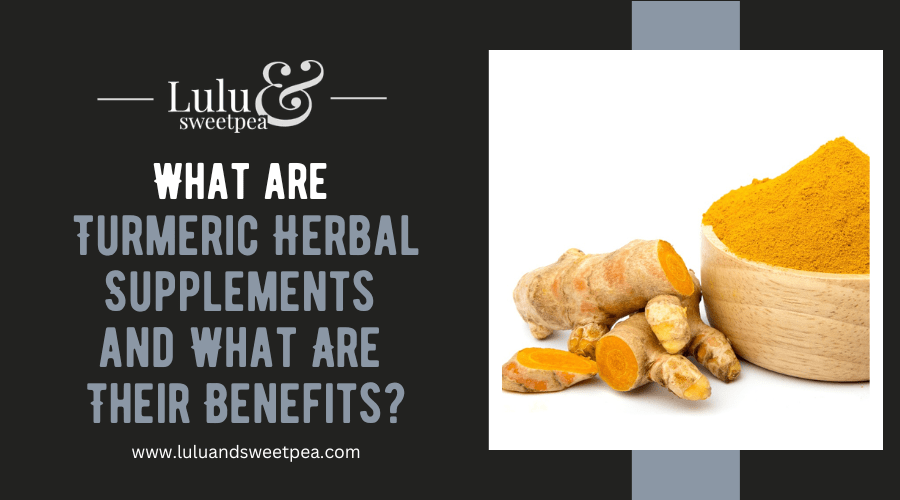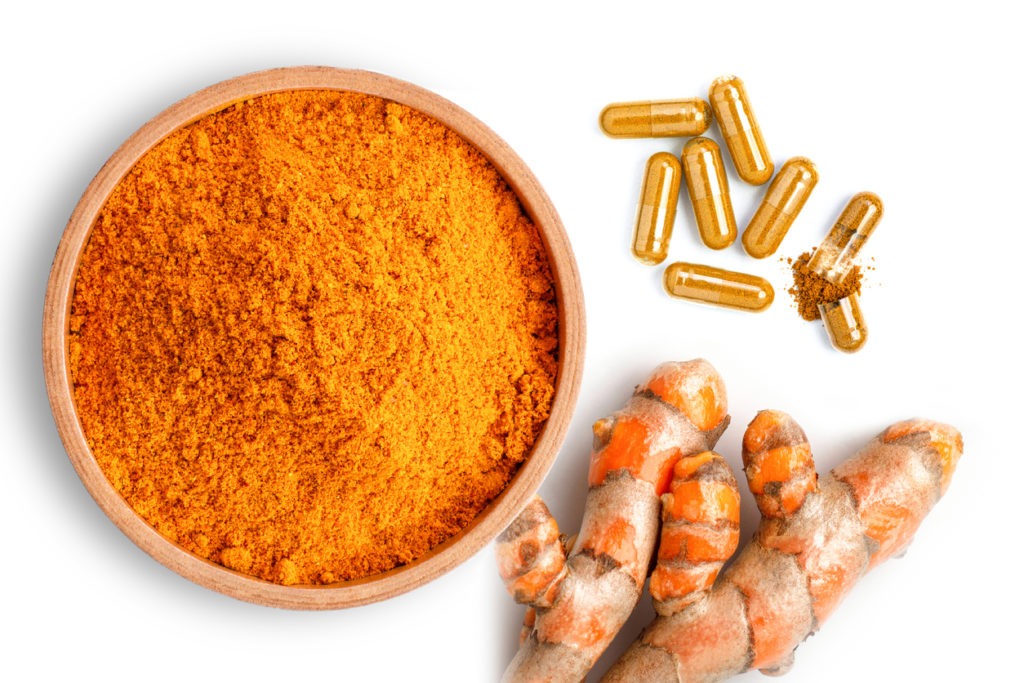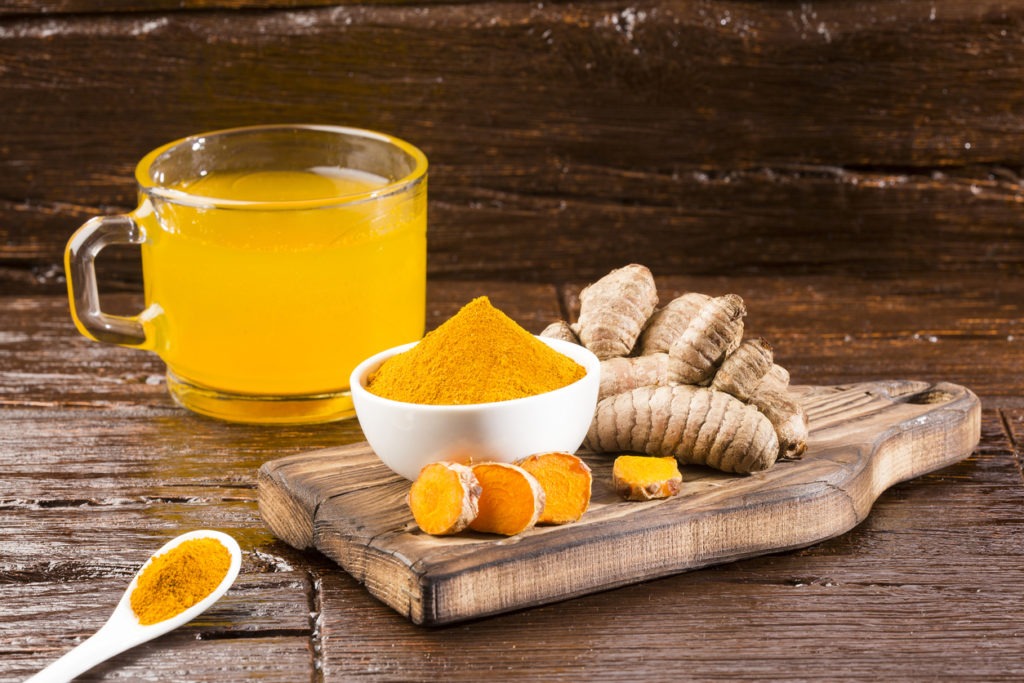Turmeric, the main spice in curry, has popped up seemingly everywhere. It has become a trendy, healthy spice sought-after by health-conscious individuals. Back then, turmeric is usually available as a spice for cooking, but now you can see it in everyday foods like crackers, popcorn, soups, and in Instagram-worthy golden milk lattes.
It’s also available as a stand-alone supplement or mixed with different healthy ingredients in many supplements you can find in health stores. But what are its health benefits, and are they really worth the hype? In this article, find out about the health benefits of turmeric.
What is Turmeric?
Turmeric is an herb that comes from the root of the Curcuma longa plant, which is native to India and other Southeast Asian countries. It’s a member of the ginger family.
The dried root of the turmeric plant is ground to a yellow powder, which is also called golden spice due to its bright, golden-yellow color. It tastes earthy, bitter, and a bit musky, with a slight ginger taste and a peppery kick.
Turmeric is an ancient spice that many experts consider one of the most powerful and effective herbs. Over the centuries and until today, it has been used to treat and prevent many ailments. It has a long history of use, particularly in Ayurvedic medicine and traditional Chinese medicine, for managing pain, digestion, swelling, cholesterol, blood sugar, and more.
The turmeric root is known for having potent antioxidant and anti-inflammatory properties, making it an ideal ingredient for health supplements.
Curcumin, a compound present in turmeric, is what makes it a functional food – meaning that it has a positive effect on health beyond basic nutrition. It’s the primary active component of turmeric, and it also gives the spice its characteristic yellow color.
What are Turmeric Supplements?
Turmeric supplements are not the same as turmeric powder. In most cases, it offers the same benefits, but curcumin supplements are more powerful. Turmeric only contains around 3% absorbable curcumin in the powdered form used in cooking, so you may consider taking it as supplement form to get the most benefits.
When looking for turmeric supplements, these tips would help:
- Consider a fermented turmeric capsule, pill, or tablet, because the fermentation process helps you absorb it more effectively.
- Try to find a turmeric supplement that contains black pepper to get maximum absorbability. You may also want to look for one with other supporting ingredients, like dandelion, ashwagandha, milk thistle, and peppermint.
- Look for tablets that are organic with no GMOs.
Curcumin supplements are safe at doses up to 6 grams per day taken orally for four to seven weeks.
Health Benefits of Turmeric
Turmeric comes with several chemical compounds that can offer a lot of positive effects on the body. Here are some of its uses and health benefits:
It’s anti-inflammatory.
One of turmeric’s main health claims is that it’s commonly used to fight inflammation due to its curcumin content. Uses of turmeric as an anti-inflammatory medicine date back to Ayurvedic and Eastern Asian medicine. Turmeric not only reduces existing inflammation but can also stop the body from producing chemicals that cause inflammation in the first place. In the right dose, curcumin may be a more effective anti-inflammatory treatment than common pain medications such as ibuprofen and aspirin.
Due to its anti-inflammatory properties, curcumin may also help alleviate symptoms of viruses and infections.
It has antioxidant properties.
Another claim to fame of turmeric is its antioxidant effects. Oxidative damage is one of the mechanisms responsible for aging and the development of many diseases. Too much exposure to free radicals can mess with the proteins, fats, and even DNA in the body, which causes several diseases and health conditions, including heart disease, arthritis, cancer, and Alzheimer’s. Antioxidant-rich spices like turmeric can play a role in protecting you from free radicals by neutralizing them. Curcumin in turmeric can also stimulate antioxidant mechanisms in the body.
It acts as a natural pain reliever.
One of the most widely-accepted properties of curcumin is its pain-relieving abilities. Numerous studies and reviews have found that curcumin may function as a natural painkiller for wound healing, burn pain, inflammation-induced arthritic pain, sciatic nerve pain, arthritis or joint pain, post-operative pain, neuropathic pain, and orofacial pain. Some herbal, topical pain relievers contain turmeric as one of their potent ingredients.
It may help protect against heart disease.
Studies have shown that turmeric can help improve cholesterol and blood pressure – two health conditions that often go hand-in-hand. By lowering cholesterol levels and blood pressure, turmeric can improve overall heart health and reduce the risk of developing heart disease. Curcumin may help protect against age-related loss of function, lessen the risk of heart disease with aging, and reduce the overall likelihood of developing heart disease.
Curcumin may also help improve endothelial function or the health and functionality of the thin membrane that covers the insides of the heart and blood vessels. The endothelial membrane plays an important role in regulating blood pressure. When the function of the endothelial membrane lowers, it increases the risk of heart disease.
It may reduce symptoms of depression.
Turmeric may help reduce symptoms of depression due to the way the curcumin impacts neurotransmitter function through brain-derived neurotrophic factor (BNDF). A study has found that curcumin has anti-depressant-like properties, making it an effective supplement in managing depression.
Some studies also show that curcumin may be able to increase serotonin and dopamine – two brain chemicals that affect mood. Turmeric may also offer a helpful boost as a complementary therapy added to medications or counseling.
It may help prevent or reverse Alzheimer’s disease.
Turmeric may even help protect the brain against common degenerative diseases like Alzheimer’s. The brain comes with a protein called brain-derived neurotrophic factor (BNDF), which plays a key role in keeping neurons healthy and regulating communication between nerve cells. Turmeric has been shown to increase levels of BDNF, helping delay or reverse brain degeneration. It can also function as a neuroprotective in the treatment of Alzheimer’s.
It may improve skin health.
Turmeric’s antioxidant and anti-inflammatory properties have been proven effective in treating multiple skin conditions, including wounds, acne, photoaging, eczema (atopic dermatitis), and psoriasis. It can help increase the luster and glow of the skin, calm the pores, speed up wound healing, and control psoriasis flares. It may also help alleviate the symptoms of facial redness, pruritus, oral lichen planus, and some types of skin cancers.
Turmeric is a skincare ingredient that is often associated with skin brightening and evening out skin tone. You can try turmeric face mask recipes to make your skin glow.
It may help treat arthritis.
Since curcumin has strong anti-inflammatory and pain-reducing characteristics, it shows promise as a treatment for rheumatoid arthritis. This chronic inflammatory disorder usually affects the joints but may also spread to other body parts, such as the lungs, heart, skin, eyes, and blood vessels.
A study has shown that curcumin treatment may be more effective than the arthritis drug diclofenac sodium in treating the disease. The same study found that curcumin treatment is safe and does not cause any adverse effects.
It may help treat or prevent diabetes.
Here’s another wonder that curcumin can do – it can help lower blood sugar, potentially helping prevent or treat Type 2 diabetes. More research is needed to prove its effectiveness on humans, but turmeric may be useful in preventing pre-diabetes from developing into diabetes.
A study has revealed that curcumin in turmeric is 400 times more potent than metformin (a common diabetes medication) in activating the enzyme AMPK (AMP-activated protein kinase). AMPK activation is considered to be a therapeutic target for type 2 diabetes – figuring out how to activate this enzyme has the potential for developing effective treatments to reduce insulin resistance and reverse diabetes.
It may help prevent or treat certain types of cancers.
Some studies reveal that turmeric has anti-cancerous properties, as curcumin is linked to disease reversal, specifically cancers of the breast, prostate, pancreas, bowel, stomach, and skin. Curcumin is revealed to be able to kill cancer cells and prevent more of them from growing, according to Cancer Research UK.
It aids in digestion and helps manage gastrointestinal conditions.
Turmeric can also support healthy digestion. The compounds in turmeric are beneficial for helping with digestive disorders, such as gas, bloating, ulcerative colitis, and inflammatory bowel disease – thanks to its anti-inflammatory properties.
People with stomach and digestive conditions can also benefit from taking curcumin. When the GI tract is compromised, introducing drugs can further damage the mucosal lining, but curcumin can help control it. It can help manage and control gastrointestinal conditions like ulcerative colitis, inflammatory bowel disease, and even Crohn’s disease. Curcumin supplements don’t have the side effects that many people complain about when taking gastrointestinal medicines.
It helps in weight loss.
Turmeric can also help those who are trying to lose weight. A study has shown that the consumption of curcumin can help significantly decrease body mass index (BMI), weight, waist circumference, and leptin levels. The anti-inflammatory properties of curcumin were effective at suppressing the inflammatory processes of obesity, which can help reduce obesity and promote fat loss.
Turmeric tea and turmeric supplements can be helpful for those wanting to lose a couple of pounds, in addition to following an exercise routine and a healthy diet.
It may help prevent eye degeneration.
The curcumin in turmeric can also help prevent eye and vision degeneration. Research has found that topical curcumin treatments can protect the eyes against degeneration and eye conditions such as glaucoma, cataract, and age-related macular degeneration.
It aids in detoxification and liver function.
Consuming turmeric and curcumin is thought to aid in supporting the liver to efficiently detoxify the body, fight off the effects of carcinogens, and reduce hepatic disorders. Curcumin has been shown to limit liver damage caused by cirrhosis, iron overdose, ethanol, and carbon tetrachloride. It helps defend against the effects of environmental and dietary toxins.
It may help treat erectile dysfunction.
Turmeric can benefit men as it can potentially treat erectile dysfunction caused by inflammation. There is limited research regarding the subject, and more human studies are needed, but it may help prevent it from happening.
Precautions from Taking Turmeric Supplements
Turmeric may offer a lot of benefits, but it may interact with some medications, especially if you are taking these drugs:
- Blood thinners (NSAIDs, warfarin, etc.) – Taking turmeric may increase the risk of bleeding.
- Diabetes meds (metformin, insulin, etc.) – Taking these together may lower your blood sugar too much.
- Antacids – Turmeric can increase stomach acid, which may make antacids ineffective.
- High blood pressure meds (amlodipine, metoprolol, etc.) – Combining it with turmeric may cause your blood pressure to become too low.
- Some chemotherapy medications (cyclophosphamide and irinotecan) – Turmeric may block these meds from working properly.
Turmeric is not advisable for people with kidney stones, gallstones, and allergies to ginger, turmeric, and other members of the Zingiberaceae family. Pregnant or nursing women are also not advised to take turmeric supplements.


